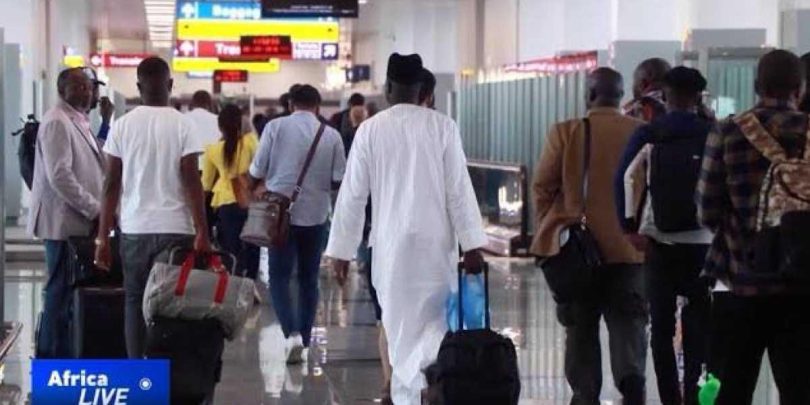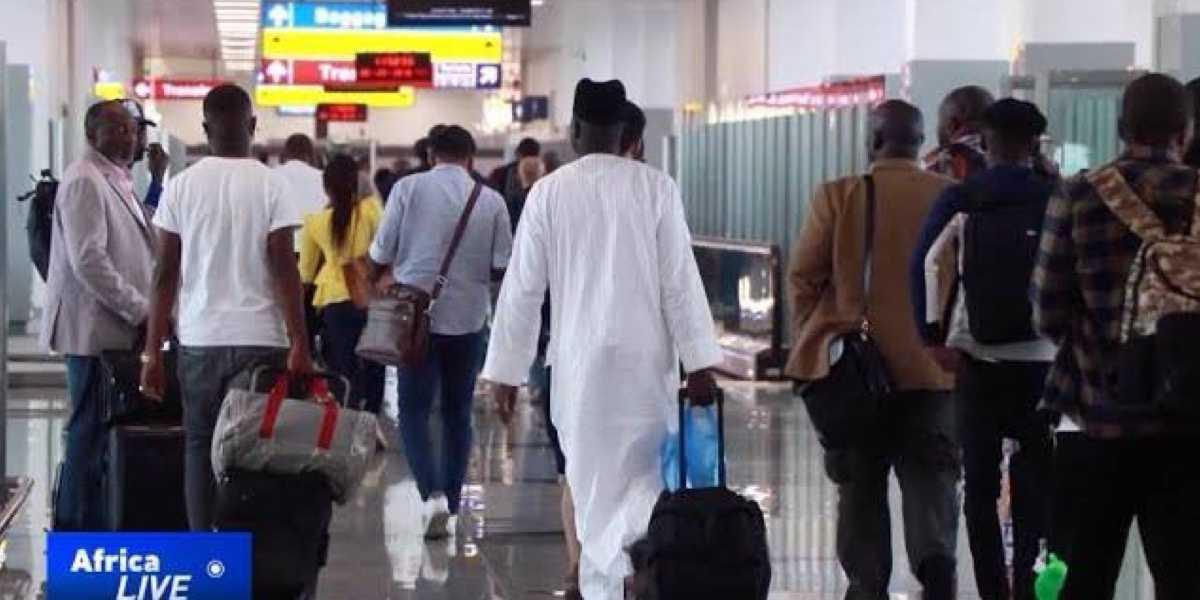An increasing number of Nigerians who initially migrated abroad in search of better opportunities are now returning home, citing unmet expectations, mental health challenges, and the realities of life abroad.
This development marks a reversal of the widely popular “Japa” trend, where millions of Nigerian youths had previously sought greener pastures in Europe, America, and Asia.
In 2023, the International Organisation for Migration reported that around 260,000 Nigerians sought assistance to migrate, with the United Kingdom being the top destination, absorbing approximately 80% of these individuals.
According to the Nigerian Immigration Service (NIS), over 3.6 million Nigerians emigrated over a span of two years.
In 2022 alone, 2.1 million Nigerians left the country, while another 1.57 million emigrated between January and September 2023. Despite this surge, a growing number of these emigrants are now making the decision to return home.
Reality far From Expectations
A 30-year-old nurse, Judith Okoli, who claimed to have spent two years in the United States after migrating in 2017 for career advancement, revealed that life there was far from what she had expected.
Despite having a steady income, the high cost of living, isolation, and persistent racism left her feeling unfulfilled and disillusioned.
According to her, she endured “a lonely life.”
“My rent alone was over $3,000 monthly. By the time you pay for bills, car notes, insurance, and taxes, you begin to wonder, what is the point?” she said.
Despite these challenges, Okoli found solace and success after returning to Nigeria in 2019, transitioning into farming after some initial setbacks.
“Farming became something I could grow and develop. Five years later, I now have a business I can watch over and expand. My side hustle is now my main hustle.”
She urged Nigerians abroad to reconsider making foreign countries their permanent homes.
“It should be a temporary place to get what you need and come back to do what you truly want,” she emphasised. “Many have been abroad for 10 years and cannot afford a flight home.”
“I planned. I failed. I went back. I re-strategised,” she said. “But now I’m back for good, and this time, I’m doing it right.”
Mental Health Struggles Leading to Return
Kenny Igho, another returnee, openly shared her mental health struggles that led her to return to Nigeria from the United States.
“The reason is because I was not happy; I was troubled. I didn’t have peace; I was anxious. Every little thing got me anxious, and I realised I was sliding into a subtle depression, so I’m like, I don’t think I want to do this anymore,” she said.
“It wasn’t a spontaneous decision; it was gradual. But at this point, I would say yes, my mind is fully made up. So, am I nervous? No, not anymore. I used to be before I thought of what to do in Nigeria, because going to Nigeria, you have to be sure; it is the truth. You have to know what you want to go and do.
“I have spoken to people. I have told them about wanting to go, and you realise that a lot of people are in your shoes, but the only thing that is stopping them is fear. And for real, I was listening to somebody and he said the barrier between you and your success is fear,” she added.
Similarly, Dr. Julius Oni, an Associate Professor of Orthopedic Surgery, quit his job at Johns Hopkins University after 25 years in the U.S.
He relocated to Nigeria with his family, where he now works to provide musculoskeletal care at DOC Medical Nigeria, aiming to offer high-quality orthopedic services in the country. He said:
“Six weeks ago, I relocated from the US to Nigeria. I took a leave of absence from my job at Johns Hopkins, sold my house, sold cars, packed my bags alongside my lovely wife and beautiful children and moved after 25 years of living in the USA
“I know at this point, some of you may call me delusional or even crazy, but I’m neither. I’m just a man full of conviction.
“I happen to believe that Nigerian patients deserve great care, too. As part of my mission, I have started DOC Medical Nigeria, which offers high-quality musculoskeletal care to the population.”
“Part of my effort is to provide access to care so that people do not have to travel to access high-quality orthopedic surgery care.”
Overcoming Social Stigma and Finding Purpose
Other returnees, like Summer Aku, revealed that they faced criticism for their decision to return.
Aku recalled, sharing the frustration she faced in explaining her decision to others.
“When I shared my Japada story, some people said my village people had dragged me back to Nigeria. There was nothing people didn’t say,” she said.
Despite these challenges, Aku runs a short-let business in Nigeria, noting that many of her guests are Nigerians returning home to bury loved ones.
“It saddens me that many never saw their parents alive, but come back just to bury them. They always express deep regret. Many people don’t realise this life is not a rehearsal; this is it. There’s no second chance to do most things right,” Aku said.
“It’s unfortunate the problems we have in Nigeria, but truth be told, there is no place like home. Nowhere else allows you to fully be part of family weddings, birthdays, naming ceremonies, and graduations.” she added.
’Nigeria No Too Bad’
Another returnee, who asked to remain anonymous, recently moved back from the United Kingdom.
“The situation in Nigeria is not too bad. I already had a connection to a business here. Since coming back, I’ve been settling in quite well.”
“There are people who are coming back for some other reasons, such as the inability to cope with life over there; some are not so open to change in culture, food, lifestyle, and the weather. The kind of luxury that we enjoy in Nigeria is not over there.
“Emigration comes with a lot of stress; it comes with its problems. Some people do not have adequate information about life out there; they believe it is all rosy. But unfortunately, it is not; it is a lot of stress. Immigrants do a lot of odd jobs to pay bills, and this,” he said.
Childcare and Financial Pressures
Ifeoma, a returnee from Canada, moved back to Nigeria with her family after struggling with inadequate childcare support and job frustrations.
”I was not working, and it was very frustrating. I was basically relying on the money from childcare and other benefits we could get to survive. My husband worked, but we had to source money from Nigeria to pay most of our bills. You can imagine how crazy that was, and it was hectic.” she said.
The Role of Immigration Laws
Immigration lawyer Cephas Caleb commented on why some Nigerians are returning home from abroad, explaining that factors such as economic, social, and other reasons may have influenced many returnees.
Another immigration lawyer, Innocent Ekpen, pointed out that President Donald Trump’s actions could have played a role in the return of some Nigerians from the U.S.
“For instance, what President Trump has been doing could be a factor, because he has been sending undocumented immigrants back home, even those that got the document from the Biden administration, the lawyer stated.
The spokesperson for the Nigerians in Diaspora Commission, Abdur-Rahman Balogun, also noted that returnees are coming back for reasons related to economics, emotions, and security.









